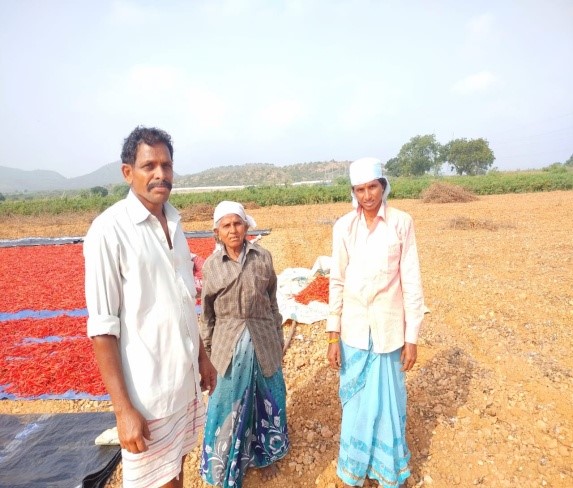
The Old Ways are Proving to Be the Best
Farmers in Yama’s district generally cultivate crops like cotton, chilies, and vegetables. They believed they needed heavy applications of chemical fertilizers to get good yields, even though people got sick from eating the foods grown with these methods.
When local partner Chethana came to Yama’s village they tried to motivate the farmers to return to the organic farming practices of their ancestors and using native seeds like millet. Yama and his neighbors were not easily sold on this switch to organic methods. Initially, the farmers chose not to follow Chethana’s advice and, in Yama’s words, “We ignored them and wasted our time by following our same unhealthy practices.”
Later, Yama reluctantly agreed to try growing millet with organic methods on half of his land. The first year, he didn’t get a huge yield … but he also suffered no loss in his investment, which was always a risk with purchased chemicals. Native millet is adapted to the dry climate, so it requires fewer inputs and less work while increasing profits.
Now Yama is cultivating a wide variety of millets, and his family is stronger and healthier from eating this safely-produced grain which is rich in minerals, vitamins and fiber. He is also making a profit, so his neighbors are taking notice. Other farmers in the village are beginning to raise millet on larger portions of their property and plan to keep doing so because of the significant improvement in their income, family health, and work load.
India South Program
Led by Presbyterian Church (U.S.A.) and Local Partner Chethana
